
In recent years, the manufacturing industry has faced increasing scrutiny over its reliance on traditional materials and processes, particularly in the realm of plastic machining. According to a report by MarketsandMarkets, the global plastic machining market is expected to reach USD 5.7 billion by 2026, driven by the rising demand for lightweight and high-performance materials in sectors such as automotive, aerospace, and consumer goods. However, the environmental impact of plastic waste has prompted manufacturers to seek innovative alternatives that reduce dependency on conventional plastics. This shift not only aligns with the growing emphasis on sustainability but also presents opportunities for technological advancements in materials and machining processes. As the industry navigates this transitional phase, developing a comprehensive checklist for innovative alternatives will be essential in optimizing production efficiency while prioritizing environmental responsibility.

The integration of biodegradable polymers in machining practices is emerging as a transformative approach in manufacturing. According to a 2022 report by the Global Bioplastics Alliance, the production capacity of bioplastics is expected to reach 2.62 million tons by 2024, reflecting a significant growth in the adoption of these sustainable materials. By replacing traditional plastics with biodegradable alternatives, manufacturers can mitigate the environmental impact associated with plastic waste. This shift not only complies with stricter regulations regarding plastic use but also aligns with consumer preferences for eco-friendly products.
The benefits of using biodegradable polymers in machining processes extend beyond sustainability. A study published in the Journal of Cleaner Production revealed that integrating biodegradable materials can improve machining performance, including reduced wear on cutting tools and lower energy consumption during processing. For instance, the use of polylactic acid (PLA) has demonstrated a 30% reduction in tool wear compared to conventional plastics, leading to cost savings and longer tool life. As the industry continues to explore innovative alternatives, the embrace of biodegradable polymers offers a viable pathway towards more sustainable manufacturing practices without compromising on quality or efficiency.
The manufacturing industry is facing increasing pressure to reduce plastic waste due to growing environmental concerns. According to a report by McKinsey & Company, up to 300 million tons of plastic waste is generated globally each year, with a significant portion originating from manufacturing processes. Innovative techniques are emerging that not only aim to minimize waste but also enhance the efficiency of plastic machining.
One innovative approach is the implementation of closed-loop manufacturing systems, which focus on reusing and recycling plastic materials. A study from the Ellen MacArthur Foundation indicates that transitioning to a circular economy could unlock over $1 trillion in value by 2025 through better resource efficiency. By employing advanced technologies such as additive manufacturing and CNC machining, manufacturers can reduce excess material and produce components with higher precision, dramatically decreasing scrap rates.
Additionally, incorporating biodegradable plastics into manufacturing processes serves as a viable alternative to traditional materials. Research from the Biodegradable Products Institute reveals that these materials can decompose within a few months under optimal conditions, significantly reducing long-term environmental impact. Manufacturers adopting these innovative techniques are not only contributing to a more sustainable future but also aligning themselves with increasing consumer demand for environmentally friendly products.
The advent of 3D printing technology is revolutionizing the landscape of plastic machining in manufacturing processes. According to a report by Smithers Pira, the global 3D printing market is projected to reach $34.8 billion by 2024, highlighting the significant growth potential of additive manufacturing. This surge is primarily driven by its ability to produce complex geometries and designs that traditional machining methods cannot efficiently achieve. As manufacturers seek more sustainable and flexible production methods, 3D printing offers an innovative alternative that reduces material waste and leads to shorter lead times.

In particular, the use of 3D printing in fabricating plastic components is gaining traction, with a study by Wohlers Associates revealing that about 26% of all 3D printed parts are made from polymers. This shift not only allows for the customization of products but also fosters the production of lightweight structures that are crucial in industries such as automotive and aerospace. The ability to swiftly prototype and iterate designs ensures that manufacturers can respond quickly to market demands, positioning 3D printing as a critical player in the evolution of plastic machining processes.
The cosmetics packaging market is undergoing significant transformation, driven by a surge in demand for sustainable solutions. Reports indicate that over 70% of cosmetics brands are adopting eco-friendly practices to align with consumer preferences. As awareness around environmental impact grows, brands are rethinking their packaging strategies, moving beyond traditional plastics to explore innovative materials.
In the food and beverage sector, the plastic packaging market was valued at $222.1 billion in 2024 and is projected to achieve a compound annual growth rate (CAGR) of over 4.7% from 2025 to 2034. This growth is largely fueled by the rising demand for convenience and ready-to-eat food packaging. However, with the challenges posed by climate change, consumers are increasingly vocal about their expectations for brands to provide sustainable options. A study found that 89% of consumers have shifted towards buying sustainable products, emphasizing the necessity for industries to adapt swiftly to this changing landscape.
As manufacturers seek alternatives to conventional plastics, exploring sustainable materials becomes a critical focus. Options such as bioplastics and recycled content not only enhance brand loyalty but also reduce the environmental footprint associated with product packaging. In this evolving market, businesses that prioritize innovative, eco-friendly solutions will likely gain a competitive edge while contributing to a more sustainable future.
The manufacturing industry has long been linked to traditional plastic machining processes that often come with significant environmental costs. However, recent technological advancements are driving a shift towards more eco-friendly machining solutions. Innovative techniques such as additive manufacturing, bioplastics, and advanced CNC technologies are revolutionizing the way materials are processed, leading to a substantial reduction in waste and energy consumption.

Additive manufacturing, commonly known as 3D printing, allows manufacturers to create complex parts layer by layer, significantly minimizing excess material use. By utilizing bioplastics, which are derived from renewable sources, companies can further reduce their carbon footprint. These advancements not only enhance efficiency but also open up new possibilities for recycling and reusing materials, aligning with a more sustainable manufacturing philosophy.
As manufacturers embrace these innovations, they are not only contributing to environmental preservation but also positioning themselves as leaders in an increasingly eco-conscious marketplace.
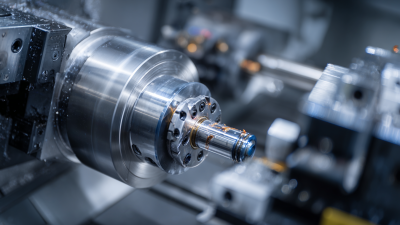
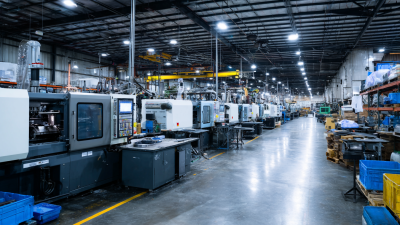
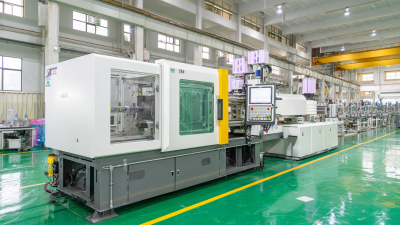

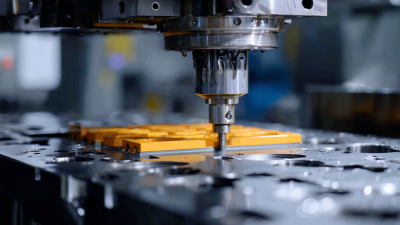
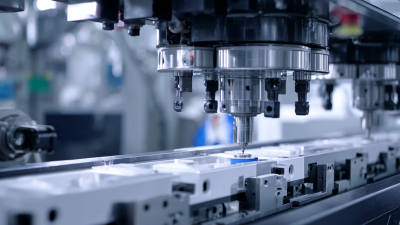
Copyright © 2025 The Toolroom Inc. All Rights Reserved.
Website Design St Louis by IQComputing